Election 2020: Reminding Myself “The West Wing” Isn’t on the Ballot
Quick aside, so my editors don’t have to put a note in: I speak only for myself in this post. PorchDrinking staff and contributors do not have any official political stance that I’m aware of, and I have no animosity for people on this site or in our country who respectfully disagree about matters of policy. Also, sorry to die-hard “West Wing” fans if I do the show a disservice. All that said… go vote.
A millennial is about to write 1,000 words arguing that a television show from 21 years ago isn’t real life. It’s the kind of groundbreaking content that’s going to save this country. You’re welcome, America!
A few years ago, I did a piece here on PorchDrinking that was a “feel good media diet” about American politics. It was a list of recommendations for movies, TV shows, and even podcasts that would make a Trump-era American feel a little calmer about what’s going on in the world. I’ve been revisiting it lately in the crazed lead-up to the 2020 election, as I remember how tragic and shocking election night 2016 was for me.
Some things have changed since March 2017 when I wrote that post.
- A few links are broken now – sorry for the 404 errors.
- My “House of Cards” shoutout aged terribly, now that I know what a monster Kevin Spacey is.
- “Hamilton” is now available to stream on Disney Plus, so it’s not all bad!
But what about “The West Wing,” a show I included in my feel-good media diet for its mix of virtue and idealism? How has that aged?
The show is about an American President who is compassionate, intelligent, charismatic, and always on the right side of history. In other words, it’s an escapist fantasy. Aaron Sorkin’s show romanticizes the White House, imagining an America with neat hour-long conflicts and a lot of highbrow banter. Compared to the tragedy/farce of our current politics, “The West Wing” can feel as comforting as a warm weighted blanket and a cup of hot cocoa.
That’s probably why HBO Max recently aired a staged reunion of the original cast of “The West Wing” (with Sterling K. Brown filling in for the late John Spencer) to benefit When We All Vote. The episode from the reunion ponders what drives people to the polls, and has a great message at the end about appealing to human needs instead of bloviating about policies. It’s the perfect episode for an anxious nation trying to get out the vote (even if there are zero “West Wing” fans who weren’t going to vote anyway). The reunion special is comfort food in fall 2020 – it inspires hope in an America where a nearly-infallible public servant can ride his competence and righteousness to electoral victory.
I think it’s important to remember, however, that no matter who wins on November 3rd, we’re not going to inherit the Josiah Bartlet administration.

In the 21 years since that show came on air, the changes in America are hard to deny. Public discourse has become more hostile. Coverage of politics has become increasingly partisan. Hot takes have leapt off op-ed pages and onto our social media timelines. But that show isn’t a time capsule: to watch “The West Wing” is not to see how our government worked in 1999, nor is it how future administrations will work even if all of our dream candidates win.
Even in 2012 – in the middle of the Obama Presidency – Yair Rosenberg of The Atlantic was cautioning readers not to look at politics through the lens of pop culture like “The West Wing.”
“While ‘The West Wing’ may be some the best American television ever produced, it is not a particularly accurate or insightful guide to the actual workings of American democracy. In fact, the very artistic and narrative choices that make it a superb drama make it a very poor representation of politics.”
One of the main issues? The myth that a few hyper-competent people are steering the nation.
According to the show, you can fit all the people who actually run the executive branch of the United States into a 45-second credits sequence (with a rousing score by W. G. Snuffy Walden).
One might think in the midst of a binge-watch that the “good old days” of American politics were full of Leo McGarrys calmly talking Senators into voting for bills that will end poverty, or Toby Zieglers who write speeches that can end wars. We might even convince ourselves that by voting for our ideal candidate, we’re bringing aboard staffers with all of the righteousness of Charlie Young, the communication skills of CJ Cregg, and the self-assured swagger of Josh Lyman.
That’s the world “The West Wing” manufactured: an administration of brilliant politicos who can walk-and-talk their way through any crisis. No coronavirus deniers. Barely any cable news. Contempt for internet forums (see below) almost a decade before Twitter launched. 9/11 didn’t happen in the world of “The West Wing,” and there are only fleeting mentions of Islamophobia in the USA or terrorism in the Middle East. The crises of “The West Wing” were designed to be an escape from real world problems of the early aughts, so to pine for that world now is entirely misguided.
Maybe I’m telling on myself here by even pointing all of this out. This should be self-evident. But when it comes to pop culture, there’s a fine line between escapism and delusion. And if we give in to comparing the state of our real-life nation with Aaron freakin’ Sorkin’s ideal version, then we are ALWAYS going to find ourselves frustrated. My minor in political science doesn’t make me an expert, but I’d imagine that real life governance isn’t anything like the gravitas of “The West Wing” or even the goofy blunderings of “Veep.” We understand that cop shows like “NCIS” and medical shows like “ER” don’t portray those professions accurately. But with all its high-minded rhetoric that barely keeps the fourth wall intact, “The West Wing” sometimes dares its audience to pretend that the America of Jed Bartlet is attainable. It’s a delusion that’s comforting until you end your binge-watch and turn on the news.
So in these last days before the election… go ahead and indulge in a media diet that keeps you sane. Find outlets for your anxiety (and seek help if it’s becoming too much to manage). Feel free to romanticize and dream of how great America can be. But in practice, don’t despair just because our government – like many other things that people revere – is messier than it wants you to think it is. Our goal should be to have leaders who mean well, try hard, and listen to what people actually need… not for them to be Mensa-level geniuses with perfect track records and zippy comedic timing.
Jed Bartlet isn’t on the ballot. The problems America will face in the next four years – whether Trump or Biden wins – are stranger than fiction. But the good news is this: unlike on “The West Wing,” the catalysts for change in our country go beyond a handful White House staffers. Rosenberg’s column in The Atlantic points out that on Sorkin’s show, “outsiders — from the American people and their electoral preferences to foreign leaders and their national interests — play only bit parts” in the drama. We have more influence on America than “The West Wing” gives us credit for.
Direct action in your community makes a difference. Voting in local and state elections can create a justice system that’s closer to ideal. And non-government organizations around the country can use your gifts to improve the lives of other Americans.
A feel-good media diet helps me combat my cynicism and curb my anxiety. It’s not the benchmark for success. Change comes in a lot of shapes and sizes. But it’s on me, not pop culture, to take a role in bringing it about.
Feature image courtesy of West Wing.


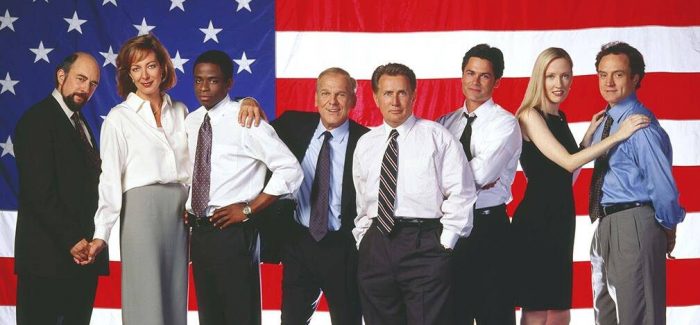

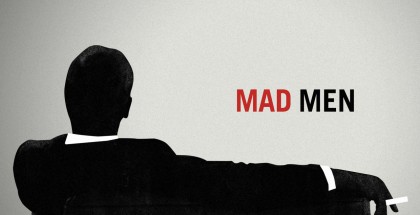
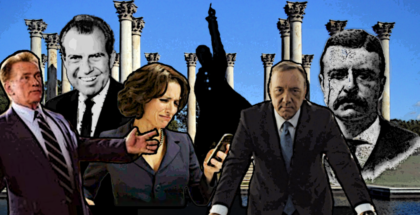
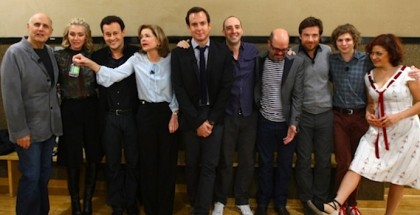
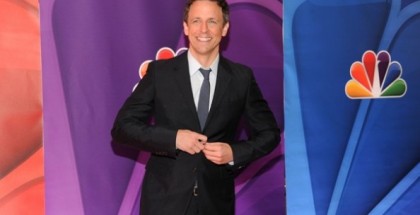
Submit a Comment